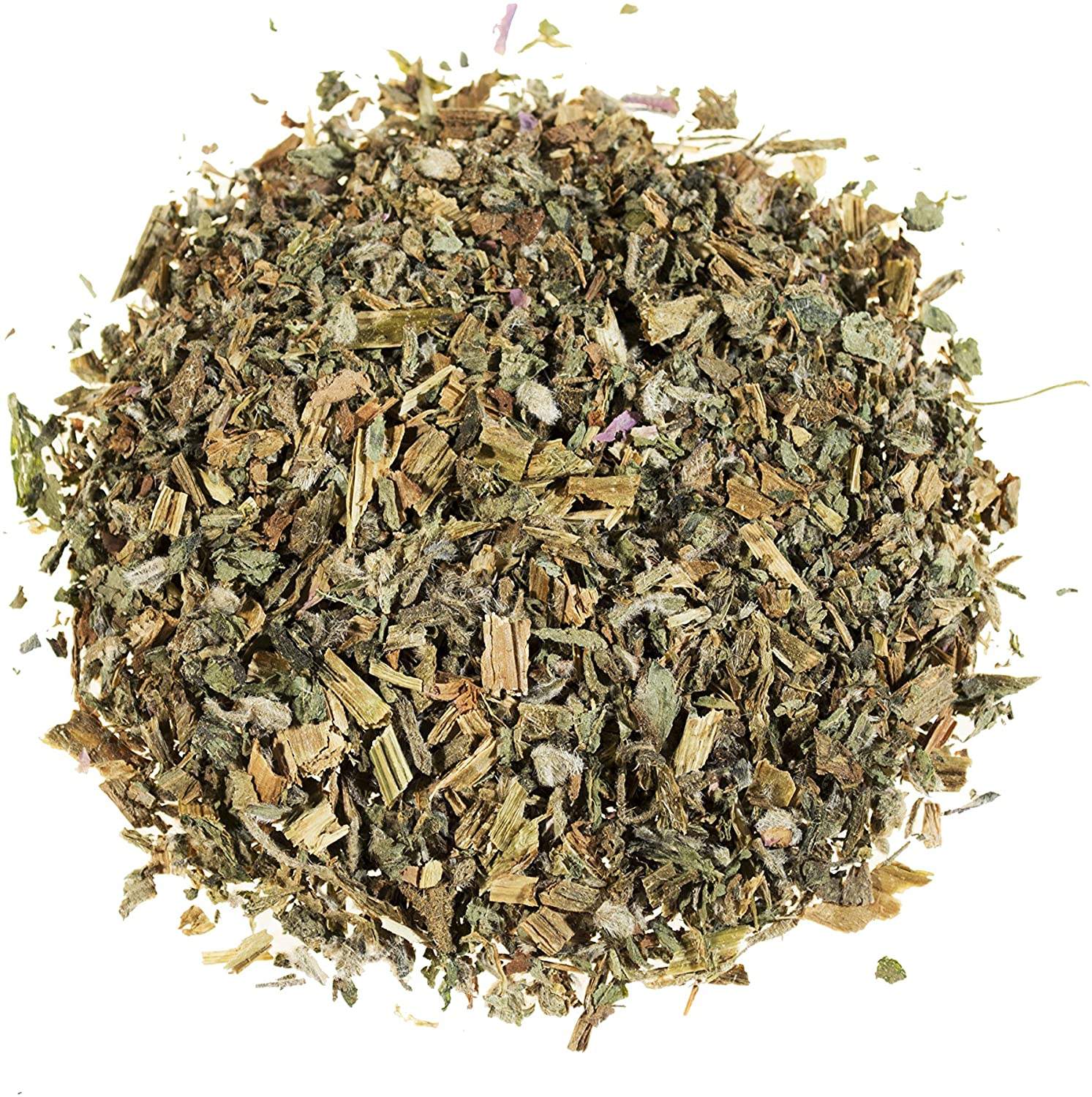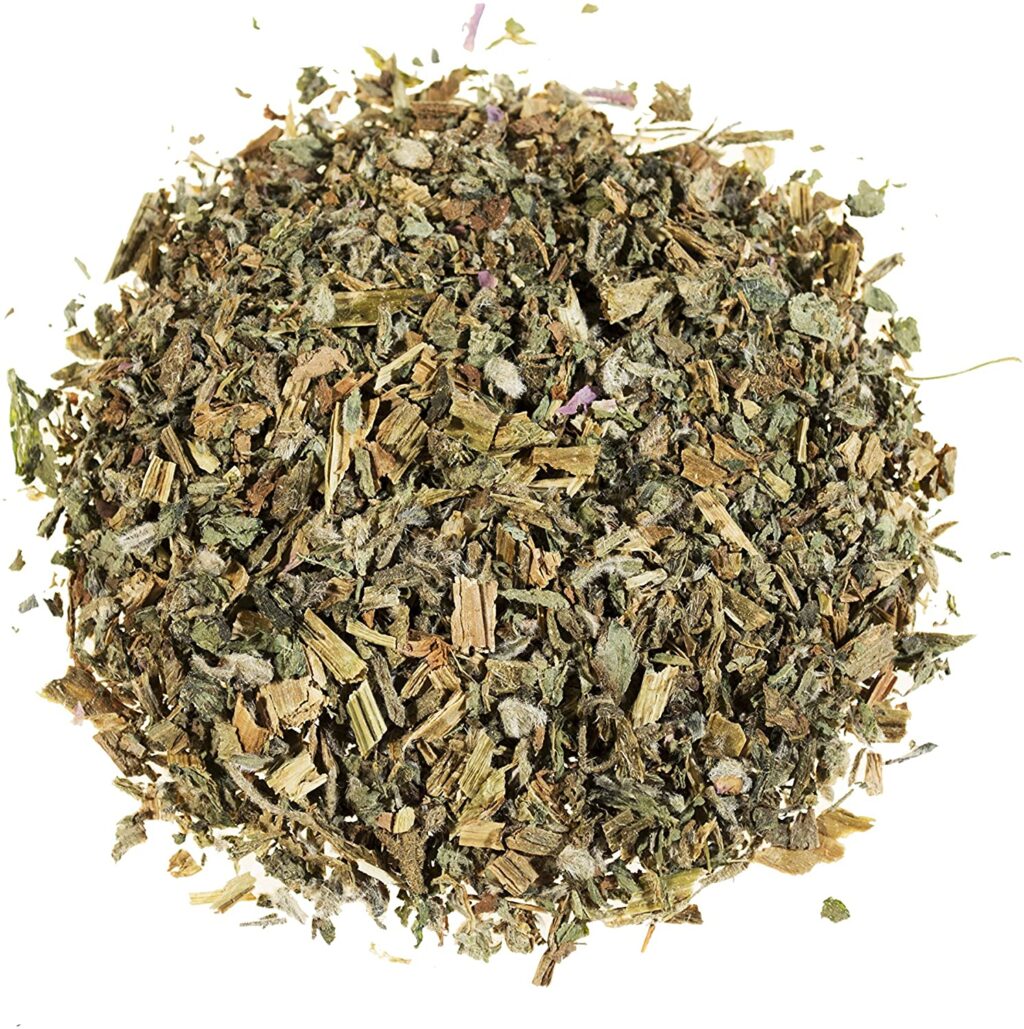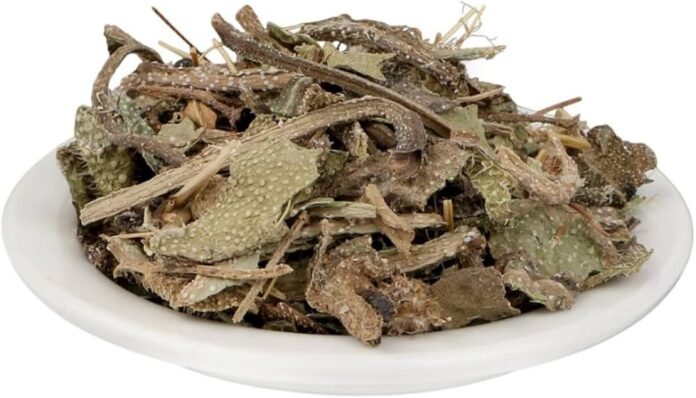What is Borage?

Borage (Borago officinalis) is a flowering plant known for its star-shaped blue flowers and is often used for medicinal purposes and culinary use. The leaves and flowers are edible and have a cucumber-like taste. Borage oil, extracted from its seeds, is rich in gamma-linolenic acid (GLA), which is believed to have anti-inflammatory properties. Borage has been traditionally used to treat conditions such as skin disorders, respiratory issues, and to support adrenal function. It is also grown as a companion plant in gardens due to its ability to attract beneficial insects like bees.
Scientific Name(s)
Borago officinalis
Common Name(s)
Borage is also known as burrage, common bugloss, bee-bread, bee fodder, star flower, ox’s tongue, and cool tankard.
Forms
Borage can be used in several forms, depending on the intended use. Here are common forms:
- Fresh Leaves – Used in salads, soups, and as a garnish.
- Dried Leaves – Used for herbal teas or infusions.
- Borage Oil – Extracted from seeds, rich in GLA, used in supplements and skin care products.
- Borage Flower – Edible and decorative, used in salads, desserts, or as a garnish.
- Capsules/Tablets – Contain borage oil or extracts, typically for medicinal purposes.
- Tinctures – Liquid extracts used for therapeutic purposes.
What are Borage Leaves?

Borage leaves are large, rough, and hairy, with a cucumber-like flavor. They are often used in salads, soups, or as a garnish. Young leaves are preferred for culinary purposes as they are more tender. In traditional medicine, borage leaves are believed to have anti-inflammatory, diuretic, and adrenal-supporting properties. They can also be used in teas to help with stress, fever, or respiratory issues. However, they contain small amounts of pyrrolizidine alkaloids, so they should be consumed in moderation.
Forms of Borage Leaves
Forms of borage leaves include:
- Fresh leaves
- Dried leaves
- Powdered leaves
- Infusions/Teas
- Poultices
Health Benefits
Borage leaves are safe for your health and offers a vast amount of health benefits. The health benefits of borage leaves include:
Anti-inflammatory Property
Borage leaves are rich in gamma-linolenic acid (GLA), an omega-6 fatty acid with potent anti-inflammatory properties. This makes them useful in treating chronic inflammatory conditions such as rheumatoid arthritis, where inflammation causes joint pain and stiffness. Regular consumption or topical application may help reduce inflammation, alleviate discomfort, and improve joint mobility.
Adrenal Support
Borage leaves have adaptogenic qualities, meaning they help the body cope with stress and restore balance to adrenal gland function. The adrenal glands are responsible for producing stress hormones like cortisol, and prolonged stress can cause adrenal fatigue. Consuming borage tea or supplements helps boost energy levels, combat fatigue, and enhance the body’s resilience against stress.

Skin Healing
When applied topically, borage leaves can soothe and heal various skin conditions such as eczema, psoriasis, rashes, and dermatitis. The GLA in borage reduces skin inflammation and supports the regeneration of damaged skin cells. Borage-infused poultices or creams are often used to treat minor cuts, wounds, and skin irritation, promoting faster healing.
Fever Reduction
Borage tea is traditionally used to reduce fever during infections such as the common cold or flu. It has a cooling effect on the body and helps regulate body temperature, easing discomfort caused by fever. The tea also promotes sweating, which can help in breaking a fever and accelerating recovery from illness.
Stress and Anxiety Reduction
Borage leaves have mild sedative properties and are traditionally used to reduce feelings of stress and anxiety. Drinking borage tea or using the leaves in herbal remedies can promote relaxation, calm the nerves, and help with sleep problems. The calming effects are especially helpful in managing mild depression, anxiety disorders, and nervous tension.
Diuretic
The leaves stimulate the kidneys to produce more urine, helping to flush out excess fluids, sodium, and toxins from the body. This diuretic effect helps reduce bloating, water retention, and edema (swelling), and supports healthy kidney function. It can also assist in lowering blood pressure by reducing the fluid volume in the bloodstream.
Side Effects
There are some common side effects of taking borage. You might have:
- Diarrhea
- Headache
- Nausea
- Stomach pain
- Cramping




